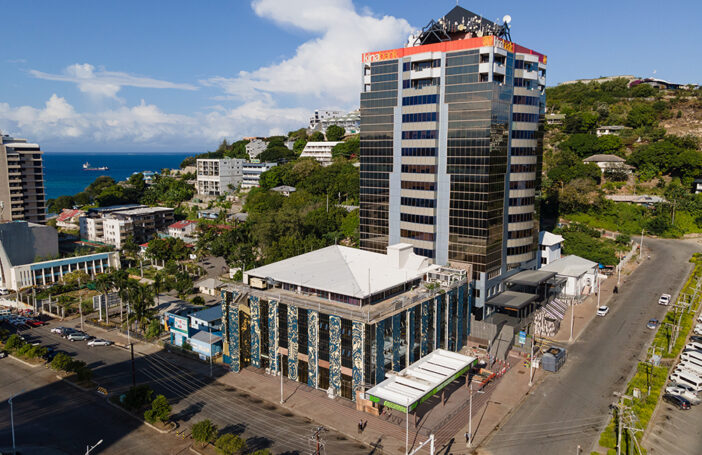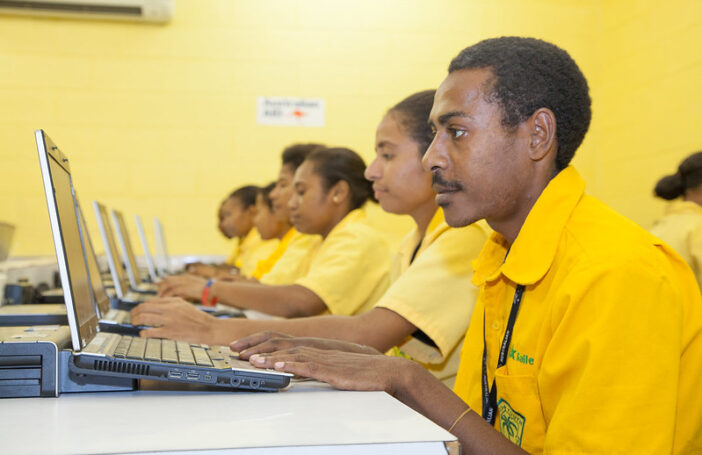The proposed measures in Fiji’s so called ‘Supplementary COVID-19 Response Budget’ are expected to cushion the economy from a severe downturn caused by disruptions due to the spread of COVID-19. Despite these measures and direct transfers, the budget package is unlikely to offer a significant boost as the Fijian economy is destined to contract sharply from a severe negative shock. The earlier economic growth forecast for 2020 was an increase of 1.7 per cent. Now, it is expected to contract by 4.3 per cent this financial year. For 2019, growth has also been revised downward by 0.5 per cent to 0.5 per cent.
Supplementary budget
Faced with revenue challenges even before the onslaught of COVID-19, the government has made a desperate attempt towards helping businesses and households adapt to the economic downturn conditions. The fiscal policy package in this budget, however, is not large enough to boost domestic demand relative to the size of the economic shock. It is also clear that the Fijian government does not have the money and revenue capacity to provide a significant boost to the economy during this time.
For this reason, the government is using workers’ pension savings to provide relief to businesses and workers themselves. After Tropical Cyclone Winston in 2016, around $275 million was withdrawn from the Fiji National Provident Fund (FNPF) by impacted members. These repeated grabs of workers’ money create a dismal setting for the future of FNPF as an effective pension fund.
Then there is the increase of 20 cents per litre fiscal duty on diesel and unleaded fuel. This is a desperate measure by government to keep some revenue flowing to its coffers, instead of allowing the full benefit of the reduction in global crude oil prices to reach consumers and businesses. A full pass through of the oil price fall would have meant about a 36 cent reduction in the price of diesel and a 26 cent reduction in the price of petrol. This would have helped keep inflation somewhat contained and would have helped businesses reduce their operational costs. Additionally, it would have cushioned the impact on the transportation sector, including taxi and bus operators.
A total of $3.5 billion expenditure has been allocated in the 2019-2020 supplementary budget. This has been reduced by $300 million from the original 2019-2020 budget. The total expenditure has been revised not only due to COVID-19 allocations but also takes into account lower than expected revenue streams in the 2019-2020 fiscal period. Capital expenditures have also been readjusted as a result.
On the revenue front, total revised revenue is forecast to be $2.5 billion against the original forecast of $3.4 billion giving a net deficit of $1 billion. The revenue total contains a $206 million sale of Energy Fiji Limited (EFL) shares. As I understand, government received $80 million for the sale of 20 per cent of its shares. Does this mean that FNPF or someone else is buying the balance of 25 per cent shares for $120 million?
Of all the revised expenditures, the most notable in direct funding is the additional budget of $40 million provided to the Ministry of Health and Medical Services. This additional allocation is crucial as the Ministry is at the forefront of the fight against the spread of COVID-19. Import duty and import VAT is now exempted on items essential in the containment and treatment of COVID-19. This is also important.
The other targeted spending includes a $20.6 million unemployment benefit for the tourism sector, the lockdown areas, and possibly elsewhere. There is also a $5 million allocation for small- and medium-sized enterprises. However, with the region hit hard by travel bans and lockdowns, the stimulus is not expected to significantly mitigate the negative impact from the recessionary conditions. From $100 million of targeted spending, only about $20 million might go directly to workers losing jobs due to COVID-19.
If the government was in a healthy financial situation, it could have afforded some popular measures implemented around the world such as wage subsidies and one-off cash payments to households. Wage subsidies (in which employees receive a flat payment rate through their employers) have been shown to be an effective way to keep people in jobs in businesses that are struggling.
Where is the Fijian economy heading?
A crisis that began in China has now engulfed the global economy. For the world economy, gradual recovery is expected in late 2020 and in 2021 as the effect of the COVID-19 pandemic begins to diminish. This year however, the world economy is expected to go into a recession. While there is no universally accepted definition of a recession, normally it involves a significant decline in economic activity spread across the economy and lasting more than six months. The most notable indicators would include decline in real GDP, household incomes, business profits, jobs, and production of goods and services.
The Fijian economy is in a freefall. Depending on the spread of the virus, the extent of travel bans and lockdowns across the region, the Fijian economy could even go into a depression – a long-term, severe recession – indicated by a decline in real GDP in excess of 10 per cent. As of now, it is difficult to forecast the path towards an eventual recovery. Even the final outcome seems unpredictable.
Nonetheless, the challenges going forward seem clear. The impact on the economy and private businesses will linger on even after this health emergency is over. In the meantime, the government needs to liaise with Fiji Bureau of Statistics and FNPF to keep a tab on business closures and job losses. This data will be useful six months down the line when it will be time to support households and businesses hurt by the economic downturn. Such data will also be useful when carrying out business reforms if macroeconomic instability and unemployment persists.
The COVID-19 crisis will reshape Fiji’s economy for months to come. The only consolation at the moment is that every crisis comes to an end. When it does, the bigger challenge will be about improving business and political confidence, creating conditions for reigniting economic growth and job creation, and repairing the damage done to the broader management of the economy during the last five years. This could be an opportunity for us as a country to strategically reposition our economy for a sustainable future. This would require credible, honest, transparent and accountable political leadership.
Note: Amounts are in Fiji Dollars.
This post is part of the #COVID-19 and the Pacific series.





Definitely interesting.
Very interesting.
Hope to see this economy revive and pick up once the travel bubble is opened.
I for one think that the present government will be out soon and that’s what we need isn’t it chuck. I mean to say they don’t do nowt.
When you have arrogant leaders leading the country, what else do we expect? We have a school drop out PM and Mr Know it all Minister of Economy is a disaster waiting to happen. They so over themselves not prepared to sacrifice and make tough decisions. Most of their spending like on Military is way too much and people can see that it is a waste since it doesn’t generate any income back to the country. Why does this Government feel they need to have a big Military Budget? Most of the policies that this Government rolls out are either done in a hurry or with lack of proper engagement from stakeholders involved. Nepotism and Corruption seems an acceptable practise within the civil service. The compromise of the judiciary and rule of law are hurting our people and also drives investors away. They are running out of options. It is clear that if they don’t change the way they are running our country, and be prepared to listen and open to suggestions, we are heading towards the doldrums.
simply Fiji lacks strategic planners who can positively move progressively ahead with a positive vision.
The two most important sentences in this whole article in my view are at the end.
1. “This would be an opportunity for us as a country to strategically reposition our economy for a sustainable future.”
2. “This would require reliable, honest, transparent and accountable political leadership.”
Questions arise –
1. Does government and the entire citizenry recognise this crisis as an opportunity to strategically reposition the economy for a sustainable future? If not, how do you make them recognise that? If yes, how do you master that collective recognition towards a national and holistic commitment to strategically position the economy for a sustainable future?
2. Reliable, honest, transparent and accountable political leadership is presumably not in place – how do you ensure this is put in place first as the means to the end above?
The main Opposition Party, SODELPA, does not present a credible alternative way forward
I’m not seeing solutions. Various governments both democratically elected or otherwise have failed in progressing Fiji. So it is likely whoever is in power won’t have a ready solution. It is evident tourism will be badly affected in the foreseeable future and this will be similar for countries like NZ that rely heavily on this sector. To generate some thought, assuming a loan props the economy in the short term, what is required and how to restore the Fijian economy post-Covid? Thoughts welcome!
Well said, successive governments have run huge deficits every year, thanks to foreign aid and local funding from FNPF, the country has been able to progress through private sector investors. Like when building a house we need plans, Fiji lacks short, medium and long term SUSTAINABLE ECONOMIC development plans. And like we need inspectors for progress, this country needs auditing it’s government expenditure from all departments to politicians.
Fiji doesn’t need more money but better management of its resources.
Corruption is driving the country into uncertainty as debt rises.
This situation is a result of mismanagement from November 2006 by current regime. Lack of genuine and good leadership and appointment of incompetent people in high profile offices including Ministers in particular Minister of Finance or Economy. This has left Fiji without funds to deal with any crisis including COVID-19, cyclones.
I hope people of Fiji who genuinely think about their country and its future generations will act in uniformity to remove the current regime of thugs and restore proper democracy where each leader representing them by their constituency is held accountable for what they sit and do in political positions.
For Fiji to recover and change course for positive sustainable development and growth, the first thing that should happen is the removal of current regime through a proper democratic election. The current regime has run out of ideas.
Bullseye
Very interesting on how fiji is going to recover from this depression
That’s the price you pay for consumption driven economy with no considerations given to vulnerabilities of small island states and heavily depending on tourism considering its fragility.
And they ignore the constant warnings from academics about the repercussions that might come afterwards. It’s like none of those in power realise that they’re doing what might be a carbon copy of the NBF saga years ago in the case of FNPF being used as a cash cow.
It’s no wonder government is broke and that its own supporters don’t even realise that. I’m not surprised that the regime can’t seem to do anything right in terms of getting it done properly without shortcuts due to being short-sighted.
But there is potential for obvious improvements and adjustments, if only government considered an academic point of view on how to sort things out.